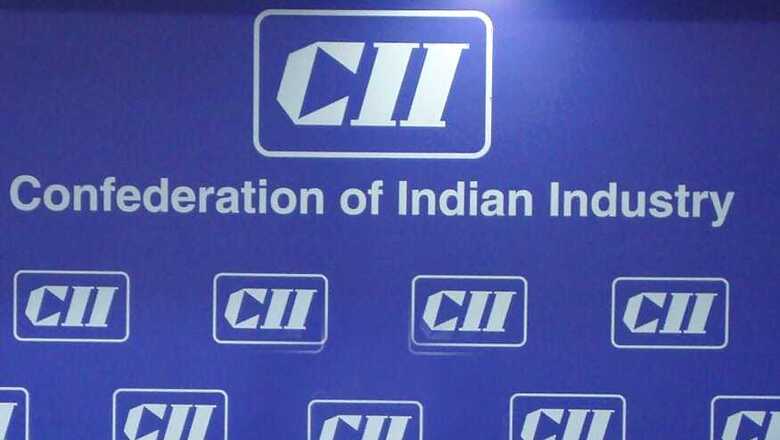
views
New Delhi: Industry association CII has asked the government for inclusion of oil and natural gas in the new Goods and Services Tax (GST) regime at the earliest.
The GST was rolled out from July 1, 2017 by subsuming most of the Central and State indirect taxes into a single tax. But, crude oil, natural gas, diesel, petrol and ATF have not been included in the ambit of GST as of now.
The Confederation of Indian Industry (CII) said till such time that the five are included in GST, C Form should be continued to avoid high tax incidence on these products.
"Though the understanding is that the previous VAT and CST rules would continue to apply to the excluded products, however, the related sectors continue to incur huge GST impact on all inputs without any set-off, as sale of crude oil and natural gas are outside the purview of GST and are subject to existing OIDA (Oil Industry Development Act) Cess, Central Sales Tax Act and State Value Added Tax," CII press release said.
As per the earlier provisions of CST Act, a purchaser can make the interstate purchase of the non-GST goods by availing concessional central sales tax rate of 2 per cent against Form-C.
Hitherto, fertiliser manufacturers, power producers, automobile manufacturers and other industries were buying natural gas and other petroleum products by paying CST of 2 per cent against Form-C.
"However, after introduction of GST, credit on VAT paid on petroleum products, including natural gas, is not available and the amendment of the CST act has significantly altered inter-state sale of the products.
"Therefore, post GST, there has been an increased tax cost on the products, which was not the intent of the government," CII said.
The central government vide Taxation Laws Amendment Act 2017, amended the definition of 'Goods' under the CST Act to include only crude petroleum, diesel, petrol, ATF (aviation turbine fuel), natural gas and alcoholic liquor for human consumption.
"Consequently, certain State Commercial Tax Departments have taken a narrow interpretation that the concessional rate of 2 per cent against C Forms can be availed only if the specified goods are used for resale, or manufacture of the same goods and not for manufacture of any other goods, or in telecommunication, or mining, or generation of power," it said.
This meant that fertiliser companies are not eligible for C Form as the gas is used to manufacture urea and not for manufacture of natural gas.
Likewise, automobile manufacturers are not eligible for C Form for inter-state purchase of diesel, petrol or natural gas, which they have to mandatorily fill in the tanks of new vehicles.
Also, if purchasing dealer is not engaged in inter-state supply of goods (as defined under the CST Act), then he will not be liable for registration and thus not eligible for the issuance of Form-C which imposes an additional tax cost burden, CII said.
The industry association said post GST, since Form-C is not available for inter-state purchase of goods and so the extra tax burden will be shifted to the consumer. It suggested that petroleum products, natural gas, electricity, alcohol and real estate should be covered under GST.
"This will ensure that the input taxes receive set-off credits and there are no stranded costs," CII said, adding that the practice of issuance of C Form under CST law should be continued till petroleum products are covered under the GST.
Alternatively, since VAT is non-creditable tax, VAT rate should be reduced to 4 per cent or lower which was the effective rate when credit on VAT was available before July 1.


















Comments
0 comment